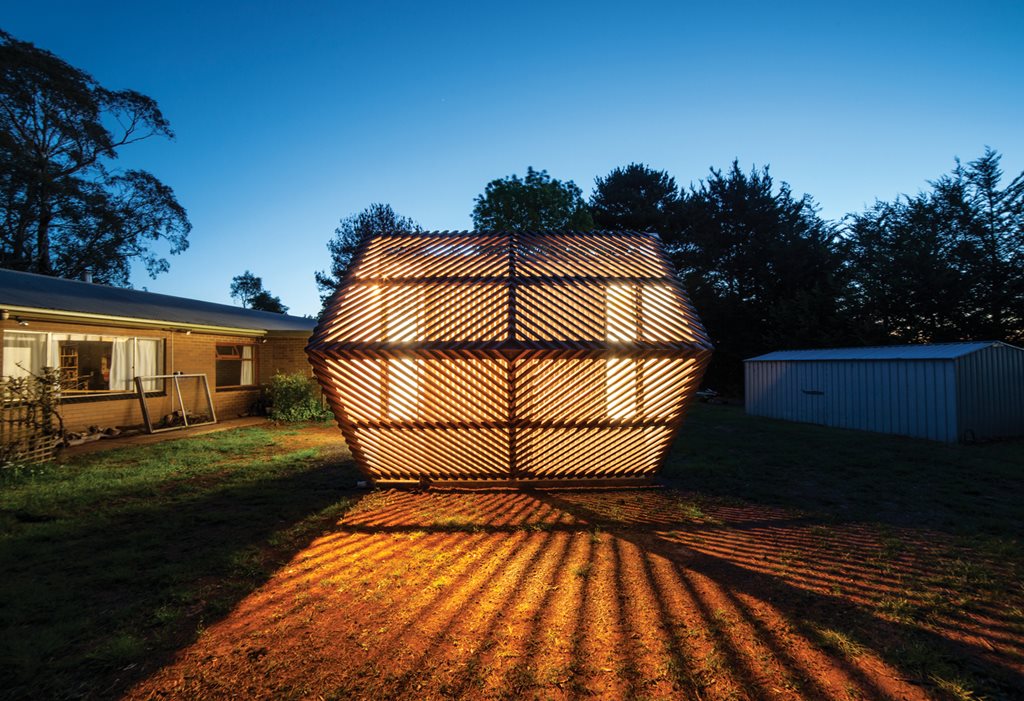There is no one way to describe Arrow Studio. An artist’s studio that was built to maximise both hanging space and privacy, it is also, at its core, a space that was built to facilitate creativity. Which goes a way towards explaining the architect’s mixed and eclectic descriptions of the project.
“The Arrow Studio was conceived as an out-of-focus, reflective vortex in the Australian landscape.”
“We sited the studio like a piece of random space junk that has fallen into a back garden facing the field beyond.”
“At night the arrow projects light through the timber slats at each end and lights up the garden like a cinema projection booth in a field.”
These are but some of the quotes to be found in the design statement issued by Nervegna Reed Architecture and PH Architects. Needless to say, the design was successful as an architectural manifestation of – and lightning rod for – creativity.
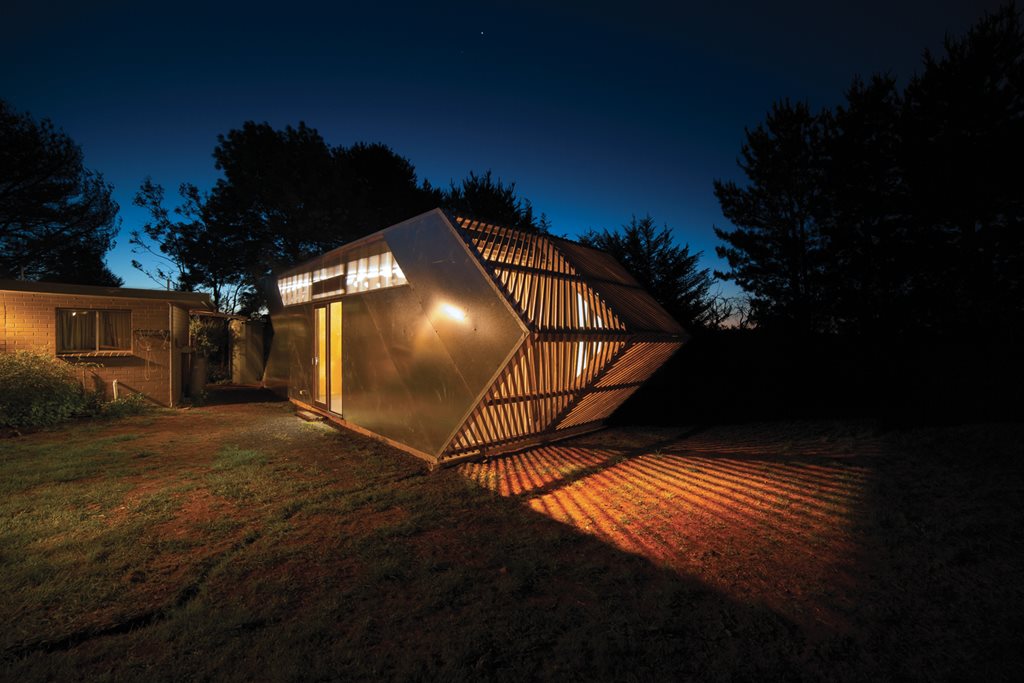
The radical arrow shape from which the project derives its name was, however, an accidental side effect of a highly specific brief. When the client approached the architects to collaborate on the project, he was firm about his priority for the space: security.
The architects were asked to incorporate as few windows as possible, and for all windows to be framed in such a way that intruders could not break in. Incidentally, this ascetic approach to sunlighting also served to maximise hanging space for the artist’s work.
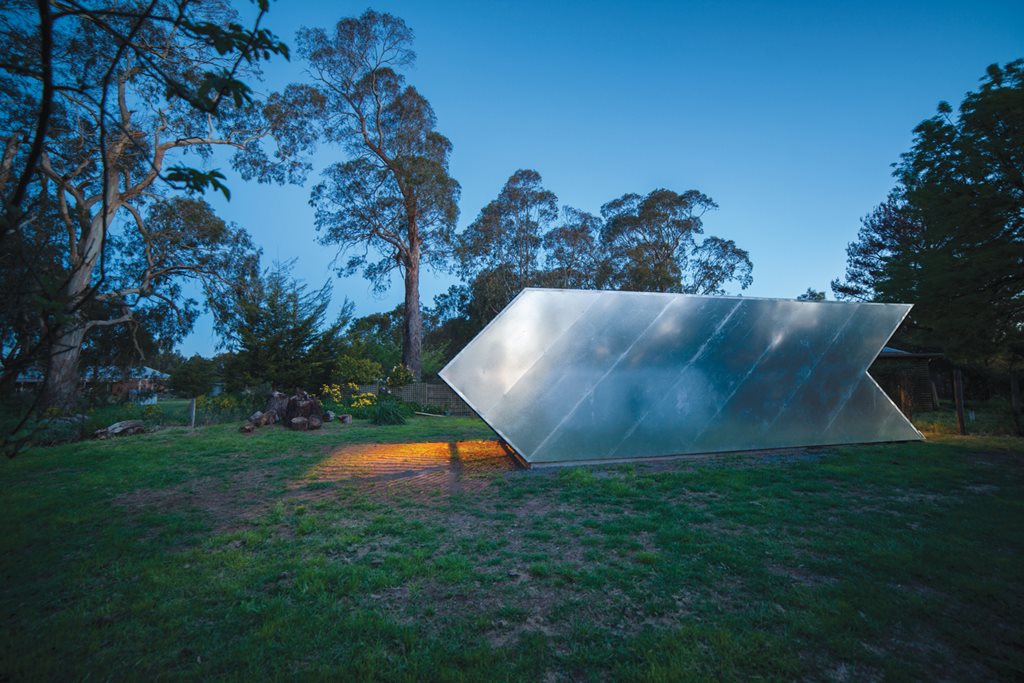
The artist specifically wanted the studio to face the bush. To accommodate views in this particular direction, an arrow shape was created – “‘pushed in’ and one end, and correspondingly ‘pushed out’ at the other end” – with timber slats incorporated along this push-pull plane.
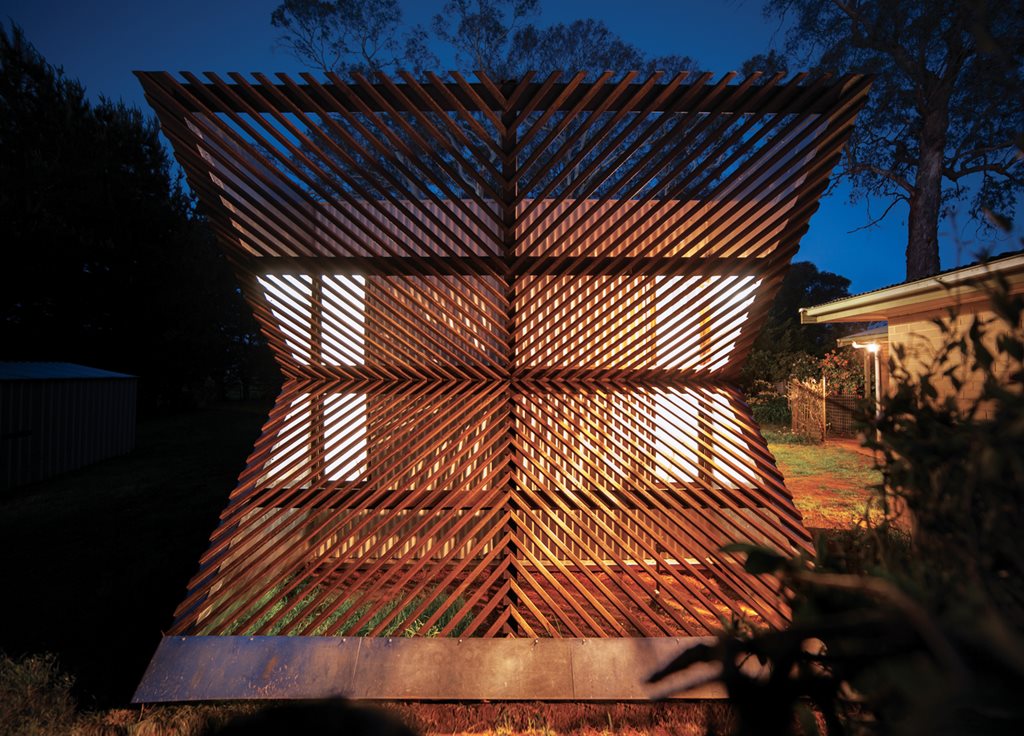
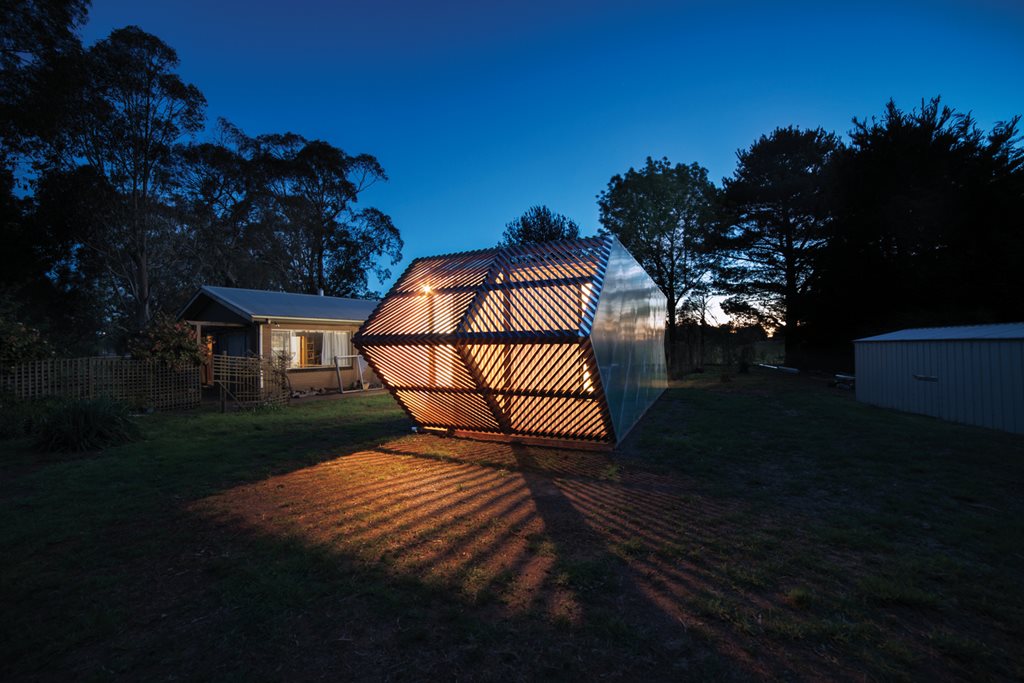
“The push-pull action allowed us to screen the ends from intruders by using optical timber slats, and still create small views,” say the architects. “The windows were small as the walls had to be maximised for hanging space.
“The budget, not much more than an off-the-shelf garden shed with slab, could not be exceeded. Therefore, all walls are ply, which braces the structure and replaces plasterboard on the inside.
“The galvanised sheets, overlapped diagonally, form a second skin which helps insulate and protects the ply from the harsh conditions. These galvanised sheets created a blurred mirror surface which encloses the space on each side. This creates an effect of a habitable void in the landscape. The roof is an off-the-shelf, insulated roofing system.
“The space between the arrow and the old brick veneer house is a protected outdoor entertaining area, while on the other side the arrow forms a backdrop for entertaining with a view of the bush setting; a place for contemplation.
“At night, the arrow projects light through the timber slats at each end and lights up the garden like a cinema projection booth in a field.”
